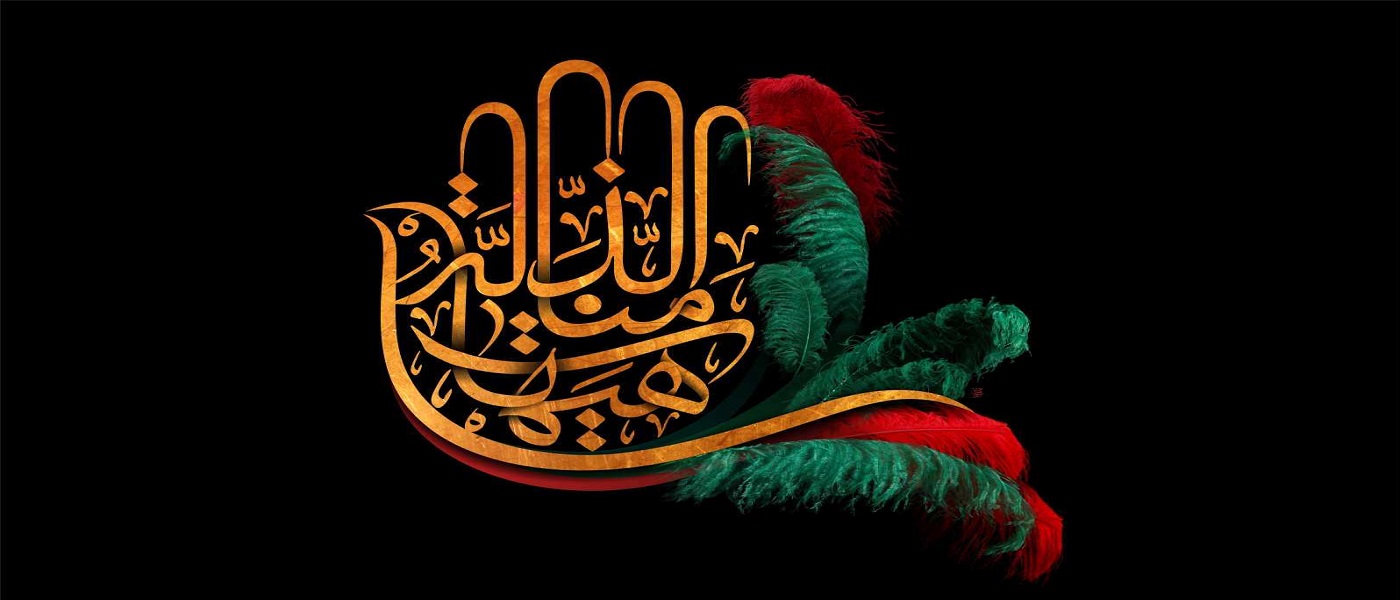

What Are My Responsibility Towards Others? Part3
Following the discussions on the concept of responsibility in Islam and Muslims' duties towards other human beings, this article reviews the duties towards the teachers, students, and young and older adults.
The Responsibility in Islam Towards Mentors
Teachers are acknowledged and valorized in Islam. It is said that God, angels, earth inhabitants and even the small ants in their nests and the fish in the seas, all salute the mentors who invite to goodness [1]. Imam Ali (AS) said that whoever has taught me a word has made me “his slave”[i] [2]. Regarding the Islamic resources, the rights of the mentor over the students are:
to be polite and grateful to the mentor, and honor him\her [3];
to sit down politely in his\her presence such that to face him\her directly [3];
to listen carefully to him\her and forget anything else during the session except what the mentor explains [3];
not to answer the questions that the mentor has been asked about and let him\her to reply [3];
to lower your voice when talking to him\her [3] as a means of showing the respect for him\her;
to ask in order to know and not to annoy the mentor or to mock him\her [4] and then to listen carefully to the answer of the question [5];
not to talk and whisper to anybody in his\her presence [3] otherwise the mentor feels being ignored;
not to talk behind other people’s back with him\her [3] since this is an unpleasant act which also bothers the audience ;
not to let others insult the mentor or lie about him\her [3];
not to reveal his\her deficiencies and to tell others about his\her positive characteristics [3].
The Rights of the Knowledge-seeker and The Responsibility in Islam Towards Them[ii]
Seeking knowledge is such important in Islam that according to Prophet Muhammad (PBUH&HP), trees, winds, clouds, seas and stars, plants and everything that the sunshine falls on, all ask for mercy for whoever seeks knowledge [6]. Also, the Prophet (PBUH&HP) said that whoever seeks knowledge is beloved by God, angels, and prophets and good for them on the judgment day [7]. Of the rights of the knowledge-seekers over their mentor are:
To be kind to them [8];
To be humble and flexible to them [8];
To know their names and some details about each of them [8]. This helps to maintain a better relationship and consequently to better teach and educate them;
To respect their character and to consider their words and thoughts [8];
To equally love them and pay attention to them [8]. In this regard, mentors are almost like judges in Islam;
To teach with serenity and dignity [8], therefore, his\her lessons impress their mind and soul ;
To be tolerant of them and answer their questions properly [8];
To consider and support kindly the newcomers [8];
To honestly tell if he\she does not know the answer to a question [8] instead of saying what he\she is not sure about;
The Rights of Young People
Of the rights of young people over older adults and their responsibility in Islam are:
To be kind to them [3];
To be engaged in their education and training [3];
To ignore and forgive their mistakes and hide their deficiencies [3];
To tolerate them, be patient with them and help them in difficulties [3];
If the young people do something wrong because they are naive, the older adults should not reveal that [3];
To avoid arguments and conflicts with them [3].
The Rights of Elderly people
The responsibility in Islam of the younger people toward the elderly include:
To respect them since they are older than you [3];
If they argue with you, do not react unpleasantly [3];
If you accompany each other on the way, do not overtake them [3];
If they do not know about something, do not humiliate them [3];
And, if they ignore you because you do not know something, keep calm and do not react as they are older than you [3].
Notes:
[i] The word “slave” here does not mean servant, but is used to valorize the mentor and emphasizes the importance of respecting him\her.
[ii] Knowledge-seeker is used as a more general word than a student to cover whoever seeks knowledge.
References:
- M. B. Majlisi, “Bihar al-Anwar”, vol. 61, p. 245
- M. Naraqi, “Jami' al-Sa'adat”.
- Imam Zayn al-'Abidin (AS), “Treatise On Rights (Risalat al-Huquq)”.
- “Nahj al Balaqa”, I. 320.
- Ibn Babawayh, “Ilal Al-Shara'I”, vol. 2. p. 334.
- H. al-Daylami, "Irshad al-Qulub", p. 164.
- M. Shoueiri “Jami’ al-Akhbar”, p. 37.
- Al-Shahid al-Thani, “Munya al-murid fi adab al-mufid wa al-mustafid”, p. 190-219.
Share This Article

40 Inspiring Quotes of Imam Hussain (AS)
1. Aim of Imam Hussain (AS)’s Revolution
The aim of my revolution is to reform the society and revive the true teachings of Islam
(Tuhaf al-Uqul, p.243)
2. Being Free-spirited
If you don’t believe in any religion, at least be free-spirited and honest in your actions
(Bihar-al- Anwar, Vol. 45, P. 51)
3. Revolt against Tyranny
I never revolted in vain, as a rebel or as a tyrant; rather, I rose seeking reformation for the nation of Islam
(Bihar-al- Anwar, Vol. 44, P. 329)
4. Patience in the Journey toward What Is Right
On the Day of Ashura, he addressed his companions:
“Be patient, you noble ones. Death is only a bridge which takes you from misery and loss to the vast Paradise and the eternal graces”.
(Bihar-al- Anwar, Vol. 44, P. 297)
5. Peacemaking and Preventing from War
O’ people! Listen to my words and don’t hasten to start a war, so that I clarify the reason behind my revolution
(al-Shaykh al-Mufid, al-Irshad, p.253)
6. Being a Just Leader
On the night of Ashura, he gathered his followers in his tent, put out the light and said:
“Beware that I give you permission to leave this place; there is no obligation on you anymore, and you can all leave.”
However, not even one of them left his side….
(al-Shaykh al-Mufid, al-Irshad, p. 250)
7. Being a Steadfast Seeker
joBe steadfast and firm in the way toward what is right, even if your journey is full of pain and challenges.
(Usul al-Kafi, vol. 2, p. 28)
8. Preserving Human Dignity
Death with dignity is better than a life of abasement.
(Bihar-al- Anwar, Vol. 44, P. 192)
9. Being Courageous
By God, I will never surrender to my enemies like a humiliated person and never pledge allegiance to them like slaves
(Bihar-al- Anwar, Vol. 45, P. 7)
10. Martyrdom for What is Right
To me, death for the sake of what is right, is nothing but happiness, and living under tyrants nothing but living in a hell
(Tuhaf-al- Uqoul, P. 245)
11. Importance of Praying
The most incapable person is the one who can’t pray.
(Bihar al-Anwar, vol.81, p.257)
12. Generosity
The most generous person is the one who gives to those who do not expect his help.
(Kashf al-ghumma, vol.2, p.30)
13. Competing in Good Deeds
Try to compete with one another in good deeds and hurry to seize the opportunities, and forget the good deeds that you haven’t hastened to do.
(Bihar al-Anwar, vol.57, p.121)
14. Being Religious
People are slaves of this world. Religion is just what they say. They use it as long as it provides them with their living. When they are tested, there remain only a few true religious ones.
(Tuhaf al-Uqul, p.245)
15. Worshiping Allah
If you worship Allah the way He deserves to be worshipped, He will fulfill all your wishes, and bless you much more than what you deserve.
(Bihar al-Anwar, vol. 68, p.184)
16. Helping Others
God will help the person who cares about other people’s needs, both in this world and the hereafter.
(Bihar al-Anwar, vol.75, p.121)
17. Having Faith in Allah
O’ Allah! What has gained the one who has not found You, and what has lost the one who has found You?
(Bihar al-Anwar, vol.95, p.226)
18. Don’t be an Oppressor
Avoid oppressing the one who does not have any supporter against you, other than the Almighty God.
(Bihar-al- Anwar, Vol. 78, P. 118)
19. Allah’s Bounties
When Allah chooses to favor someone, makes him/her the source of satisfying other people's needs.
(Bihar al-Anwar, vol.74, p.205.)
20. Beware of Your Own Sins
Beware! Do not be among those who are concerned about the sins of others while neglectful of their own sins.
(al-Kafi, vol.8, p.49, Hadith #9)
21. A True Friend
One who reveals your faults to you like a mirror is your true friend, and one who flatters you and covers up your faults is your enemy.
(Bihar-al- Anwar, Vol. 78, P. 128)
22. Satisfying People, while Disobeying Allah
Whoever seeks the satisfaction of people through disobedience of Allah; Then Allah subjects him to people.
(Bihar-al- Anwar, Vol. 78, P. 126)
23. Follow the Truth
Wisdom will not be gained, unless through following the right path.
(Bihar-al- Anwar, Vol. 78, P. 127)
24. Say Good Things
Say what you like to be said about you, in the absence of your fellow believer.
(Bihar-al- Anwar, Vol. 75, P. 127)
25. Don’t Commit What is Wrong
Avoid doing things that would make you apologize; since a believer won’t commit a wrong action that would make him/her sorry.
(Bihar-al- Anwar, Vol. 75, P. 120)
26. Actions should be done for Allah
If you lead your actions through committing sins and disobeying Allah, your intentions won’t be fulfilled and will be caught in what you fear most.
(Bihar-al- Anwar, Vol. 75, P. 120)
27. Kindness and Faithfulness
Kindness elevates human beings, and faithfulness is the sign of decency.
(Bihar-al- Anwar, Vol. 75, P. 122)
28. Extremism and Abject People
Extremism is like going down in a swamp, and keeping company with abject and corrupt ones will bring evil and misery for you.
(Kashf al-ghumma, vol.2, p.30)
29. Knowledge
Seeking knowledge will lead you toward wisdom and elevation.
(Bihar-al- Anwar, Vol. 75, P. 128)
30. Visiting Relatives
Visiting relatives and keeping in touch with them will bring you a longer and more substantial life.
(Al-Shaykh al-Saduq, Oyoun Akhbar Al-Ridha, vol.2, p.44)
31. The Most Generous
The most generous person is the one who forgives while in power.
(Kashf al-ghumma, vol.2, p.29)
32. Maintaining Family Ties
The best way of maintaining family ties is through visiting the ones who have cut ties with you and haven’t visited you for a while.
(Kashf al-ghumma, vol.2, p.29)
33. Helping Your Fellow in Religion
Whoever helps his/her fellow in religion for the sake of Allah, He will compensate for him/her and eliminate the hardships from his/her life. Also, whoever relieves a believer’s grief, Allah will free him/her of his/her pains and sufferings in this world and the other world.
(Bihar-al- Anwar, Vol. 75, P. 121)
34. Trusting Others
Only trust those who believe in Allah and are afraid of His questioning on the Day of Judgement.
(Al-Shaykh al-Saduq, Jameh al- Akhbar, p.97)
35. Paying the Debts
While on his way to Karbala, Imam Hussain (AS) said: “I cannot have whoever owes a debt in my company. Prophet Muhammad (PBUH&HP) used to say: ‘whoever dies while owing to other people, his/her good deeds will be void in the hereafter.’”
(Kalimat al-Imam al-Hussain (AS) (Words of Imam Hussain), p.417)
36. People’s Praise and Blame
Gain people’s praise with your efforts and successes, and do not expose yourself to people’s blames through laziness and lethargy.
(Kashf al-ghumma, vol.2, p.29)
37. Gaining Experience
Long and numerous experiences strengthens your mind.
(Bihar-al- Anwar, Vol. 75, P. 128)
38. A Scholar’s Sign
One of the signs of a scholar is criticizing his/her own words and thoughts and being aware of different viewpoints.
(Bihar-al- Anwar, Vol. 78, P. 119)
39. Beware of What You Say
Do not say something which would undermine your self-worth.
(Muhammad Baqer al-Majlisi, Jala’a al-Oyoun, vol.2, p.205)
40. Physical Health
Observe your physical health in your lifetime.
(Tuhaf al-Uqul, p.239)
Read More

6 Etiquette of Alms-giving and Generosity in Islam
In the previous article, we explained the importance of generosity in Islam. This article presents you with six codes of behavior that are to be observed in the acts of charities and alms-giving. The religion of Islam attaches great emphasis to the way how we offer our generous help and kindness to others. Some of the rules regarding generosity in Islam are as follows:
1. Sincerity
“‘We feed you only for the sake of Allah. We desire no reward from you, nor thanks’” (76:9)
In this verse, Allah praises the family of Prophet Muhammad (PBUH&HP) [Ahlul-Bayt (AS)], who would give their food to the needy only for the sake of God's grace and satisfaction without asking for rewards and even waiting for thanks.
2. Piety
“As for him who gives and is Godwary” (92:5)
The companionship of generosity in Islam with piety is to avoid stinginess in almsgiving and also to earn and spend in lawful (Halal) ways. You can choose a deceitful way to reach a laudable aim since the ends can never justify the means.
3. Moderation
“Do not keep your hand chained to your neck, nor open it all together, or you will sit blameworthy and regretful ” (17:29)
This verse stresses the importance of moderation saying we should neither quit almsgiving by being tight-fisted nor be too open-handed in our act of kindness towards others.
4. Avoiding Hurting People
“O you who have faith! Do not render your charities void by reproaches and affronts” (2:264)
Expressing or reminding your favor upon others may hurt their feelings and would definitely invalidate your charitable act. Islam strongly recommends us to treat each other with dignity and respect. Therefore, we should seriously avoid any kind of hurtful behavior or words which we think might offend the receiver of help.
5. Giving of the Good Things that You Have Earned
“O you who have faith! Spend of the good things you have earned [through trade and the like] and of what We bring forth for you from the earth, and do not be of the mind to give the bad part of it, for you yourselves would not take it unless you ignore…” (2:267)
We are surely reluctant to receive anything worthless; so how could we give away something we do not like ourselves in the path of Allah? This is definitely disrespectful to our fellow brothers and sisters, insulting the high status of God.
6. Upholding the Dignity and Self-esteem of the Poor
It is highly recommended in Islam to give charity in secret so that the needy does not feel embarrassed and to safeguard his/her dignity and self-esteem. We should know that we are never superior to the one we are helping no matter how great our charity is.
Shall We Help the One Whom Allah Would Help if He Wished?
This question is asked by the disbelievers when Allah tells them to give charity: “When they are told, ‘Spend out of what Allah has provided you,’ the faithless say to the faithful, ‘Shall we feed [someone] whom Allah would feed if He wished? You are only in manifest error’” (36:47).
You might also wonder why Allah does not provide for the destitute Himself and orders the rich to help them! To resolve this doubt one should think about how people would develop virtues if they were all the same and had the same facilities! What would responsibility mean then? What about freedom of choice? Wouldn’t it be deterministic if God chose to help the ones He wished? “Does man suppose that he has been abandoned to futility?” (75:36)
There would be only one answer to all these questions: Each of us is responsible for everything that happens to us and also for our fellow human beings. The teachings of generosity in Islam are recommended in many verses of the holy Quran and stories from our infallible Imams to help us all lead a better life.
Not only that, psychologists and researchers of modern sciences have proven the positive impacts generosity has on our lives, as well. That is why people around the world nowadays are getting more and more engaged in many charitable acts like voluntary works, donations, etc., which would help the cycle of “good” going and make us all live in a happier world.
Read More

